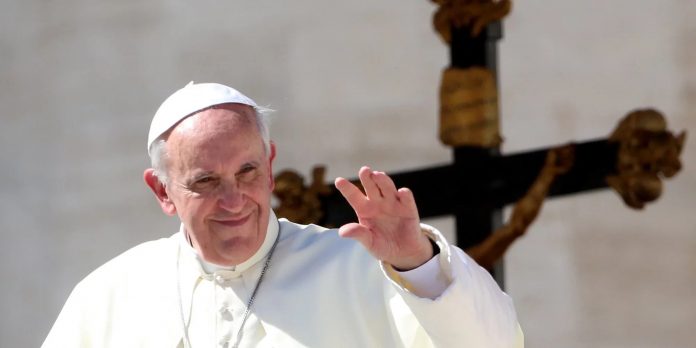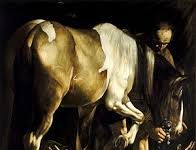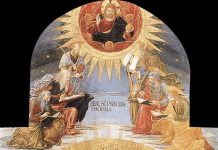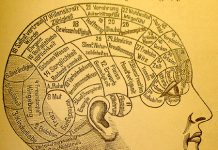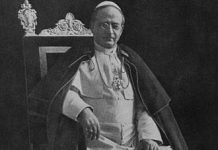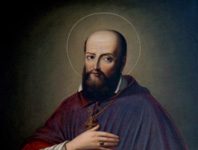A blessed solemnity of the Most Holy Trinity, the greatest and most fundamental mystery of our Faith, signifying Who God is in His very Self, His interior Being. I AM WHO AM. As I looked back at what I had written on this feast two years ago, I noticed I had commented on a phrase of Pope Francis’ in a General Audience of June 7th, which I had forgotten, but the re-posting of my attempted explanation may help shed light on the mystery of the Trinity.
So, let’s begin with the Pope:
Dear brothers and sisters, we are never alone. We can be far, hostile; we can even say we are ‘without God.’ But Jesus Christ’s Gospel reveals to us that God cannot be without us: He will never be a God ‘without man’; it is He who cannot be without us, and this is a great mystery! God cannot be God without man (original: Dio non può essere Dio senza l’uomo): this is a great mystery!
The two hallmarks of theology, according to the Thomist Josef Pieper, are clarity and precision, both of which reach their apex in the writings of Saint Thomas Aquinas, the patron of theologians, indeed of Catholic schools and universities in general.
The two terms themselves ask for definition:
With clarity, one’s meaning comes through to the mind of the hearer or reader. Truth is conveyed, so that what one means to say, one says.
With precision, one conveys neither more nor less than one’s meaning, literally ‘cutting away’ (pre-scisso) whatever is unnecessary or obscures one’s meaning.
If a text is ambiguous or imprecise, especially in theology, one must use one’s reason, and one’s own knowledge of theology and tradition, to explain the text.
In the present case, it is true that since Man’s creation, God cannot be ‘God’ without Man, for there is now an eternal covenant between God and his creatures, for whom He wills only the good, especially for those made in His image (men and angels), and this ‘good’ includes at its most fundamental level the good of existence. Saint Thomas does ponder whether God could annihilate anything He has created, and concludes that He in theory could, but would not, out of His beneficent love (which does raise the question whether therefore He really could, pace Saint Thomas, or would, pace Pope Francis’ purported speculations).
However, prior to creation, – insofar as we may speak of anything ‘prior’ in reference to God, Who exists totum simul, in an eternal, all-encompassing present – God was (is?) indeed fully ‘God’ without Man, and had no need to create anything at all, whether angels, men, brutes or planets, for as the Catechism declares in its opening paragraph, God was “infinitely perfect and blessed in himself” and that He “in a plan of sheer goodness freely created man to make him share in his own blessed life”. The act of creation was therefore one of pure, altruistic love, willing the good of creatures by bringing them from nothingness into the great goodness of existence.
So in the end, God is God with or without Man, and is only God ‘with Man’ because He has chosen to be so, not from any need, or aspect of His nature.
To delve further into the metaphysics of God, as a supreme Being of pure existence, it should be noted that God cannot in any strict sense ‘change’, and He underwent no modification of His being either in creation, nor even in the Incarnation. To imply any change in the nature or being of God (which are both one in Him) would be to fall into the notion of ‘process’ theology, that God grows and develops, becomes more ‘perfect’, with His creatures, sort of like a human parent.
Such a view would paint a very imperfect and erroneous idea of God, as some sort of Being-in-potency who needs His creation to be Who and What He is. Rather God is and always has been Who He is, the I Am Who Am, before Abraham, before Adam, before everything. God exists eternally as a perfect Trinitarian communion of knowledge and love – intellect and will – as we celebrate this Sunday, the communion of Persons upon which, or upon Whom, all other communions are based, not least the human family, the most perfect societal image we have of the Trinity this side of heaven.
In the end, it is the Holy Spirit Who guides the Church into the ‘fullness of truth’, and we need not fret nor become despondent, even if the truth is obscured, or phrased less than felicitously. God can speak through ambiguity, even the imperfections, of human teachers (thankfully so, for how imperfect are we all!). The truth always wins out in the end, even if the route taken be somewhat ambiguous and circuitous, at times.
So on that note, a very blessed and joyous solemnity of the Most Holy Trinity to one and all…
Gloria Patri et Filio et Spiritui Sancto

